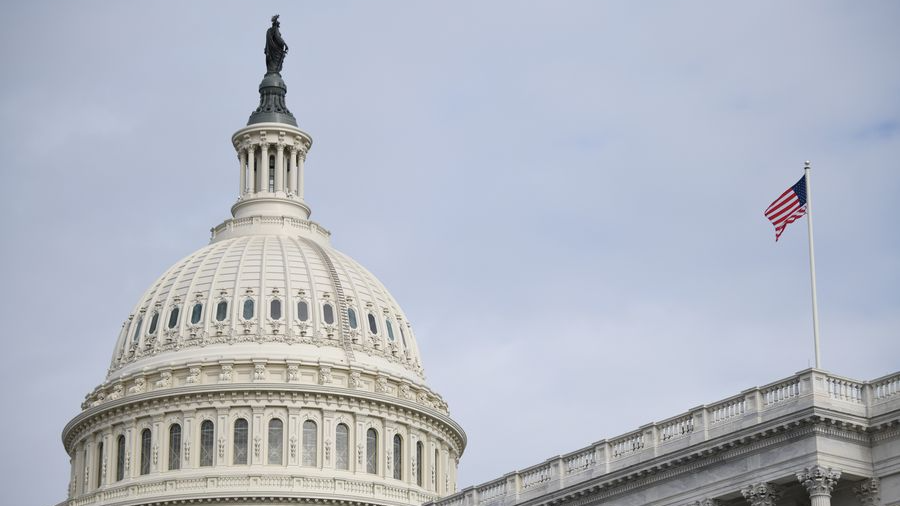
The Capitol Hill in Washington DC, the US, Dec 4, 2019. [Photo/Xinhua]
This is an editorial from China Daily.
In the Joe Biden administration's latest attempt to gain some traction for its "Indo-Pacific strategy" among countries in the region, United States Joint Chiefs of Staff Chairman Mark Milley is attending a meeting of the "Indo-Pacific" chiefs of defense in Australia.
Like the strategy itself, which is focused singularly on China, the conference that is being held in Sydney from Monday to Wednesday is based on the proposition being relentlessly peddled by Washington that China is becoming increasingly aggressive and poses a threat to the region.
General Milley and other US China hawks claim that China's efforts to expand its influence throughout the region constitute a challenge to regional peace and stability. But that is because they view it as a challenge to the US' primacy in the region, which the US has long considered is its postwar prerogative.
China's trying to expand its influence throughout the region "has potential consequences that are not necessarily favorable to our allies and partners (in other words the US' proxies) in the region", Milley told reporters traveling with him.
There are plenty of issues setting Beijing and Washington apart. But it is Washington's peremptory insistence on dictating the terms for the regional order that has the greatest potential for combustion, as it is backing that up with bullyboy muscle.
Despite Washington's repeated assurances to Beijing that it doesn't seek confrontation, its actions belie its words.
General Milley knows how much more aggressive the US military presence has become in the recent past, and how much of it has been based on perceived, rather than actual, "threat".
The constructive relationship that the Joe Biden administration claims to aspire to should not only feature immediate crisis management. It should also include a degree of mutual trust and understanding based on an objective perception of the bigger picture.
Instead of producing divisive strategy after strategy identifying "rivals" and what it considers to be "rogue states", which serve as justifications for its overt and covert operations to maintain its status as global overlord, the US should reflect on what is involved in being a responsible member of the international community.
Beijing has always maintained a high-profile commitment to both regional and global peace, insisting peace and development have been and should continue to be the themes of the times. Based on that, it has sought to on the one hand reverse the trend of de-globalization, and on the other proposed its own global security and development initiatives.
These initiatives represent both its commitment to and pathways for good global governance and sustainable development.

 中文
中文





